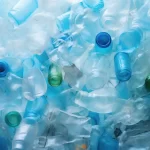Are construction debris different than household
Yes, construction debris and household waste are typically different in terms of composition and the types of materials involved.
Understanding the distinctions is important for proper waste disposal and recycling.
Here’s a general overview of the differences between construction debris and household waste:
- Composition:
- Construction Debris: This category includes materials generated during construction, renovation, or demolition projects. Common construction debris items include wood, drywall, concrete, bricks, roofing materials, insulation, metal, and other construction-related materials.
- Household Waste: Household waste consists of everyday items generated by individuals and families. It includes food waste, packaging materials, paper, plastics, glass, clothing, and general household items.
- Volume and Weight:
- Construction Debris: Construction debris tends to be bulkier and heavier compared to typical household waste. Items like concrete, bricks, and lumber can contribute significantly to the weight and volume of construction debris.
- Household Waste: Household waste is often lighter and may include a higher proportion of recyclable materials, such as paper, cardboard, and plastics.
- Disposal Methods:
- Construction Debris: Disposal of construction debris often requires specialized handling and disposal methods. Large items like concrete or metals may be recycled, while other materials may be taken to construction and demolition (C&D) landfills.
- Household Waste: Household waste is usually collected through municipal waste management services. Recycling programs are common for materials like paper, cardboard, glass, and certain plastics, while non-recyclable waste is sent to landfills.
- Recyclability:
- Construction Debris: Many construction materials are recyclable. Concrete and asphalt can be crushed and reused, metal can be recycled, and certain wood products can be repurposed.
- Household Waste: Household waste often contains a mix of recyclable and non-recyclable materials. Separating recyclables from non-recyclables at the source is a common practice.
- Special Handling:
- Construction Debris: Some construction materials, especially those containing hazardous substances, may require special handling and disposal procedures to ensure environmental safety.
- Household Waste: While household waste is generally less likely to contain hazardous materials, certain items like household cleaners, paints, and electronic waste should be disposed of properly to prevent environmental harm.
It’s important to check with local waste management authorities and follow their guidelines for the proper disposal of both construction debris and household waste. Local regulations and recycling programs may vary, so understanding the specific requirements in your area will help ensure responsible waste management.
Recent Posts





